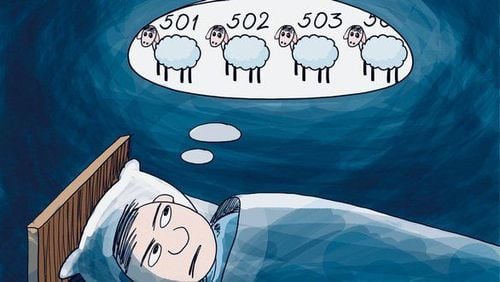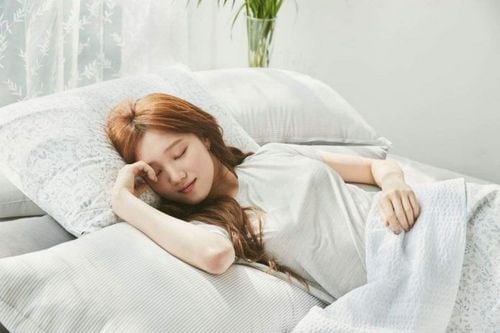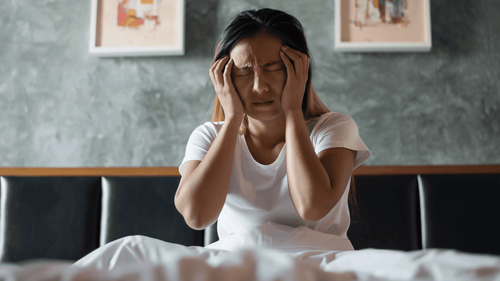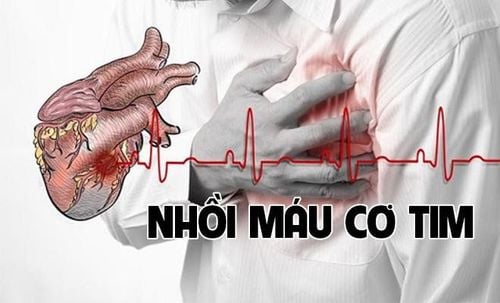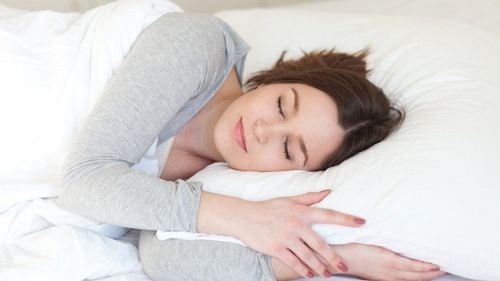This is an automatically translated article.
In life everyone has memories that can be happy memories, happy memories or sad memories, and sometimes they can be wrong memories. So what causes us to have the wrong signatures? Is it due to prolonged sleep loss? The answer will be in the article below for you to understand more about how insomnia can increase mistaken memories and get intervention solutions.
1. What are memories and mistaken memories?
Memory of an event rarely provides a literal record of that experience. Instead, they involve integrating elements of the episode with prior experience or knowledge. A new or different experience, such as a first publication in a high-impact journal, is rarely misremembered. However, when the memory of a particular set is confused with previous similar experiences and/or is not explicitly encoded, errors in subsequent memory retrieval can occur. The emergence of such false memories often reminds us of human survivability, highlighted by the inconsistency in recollection of individual events surrounding the Challenger disaster (Neisser et al. Harsch, 1992). However, they can also have more serious consequences such as wrongful convictions due to inaccurate witness statements.
2. Insomnia can increase mistaken memories
According to researchers in Germany and Switzerland, prolonged sleepless nights or sleepless nights can increase your chances of forming mistaken memories. Therefore, we need a good night's sleep, getting enough sleep can help prevent the formation of false memories. While neuroscientists know that memories can be consolidated while we are asleep, it is unclear whether false memories form while we sleep or if they are only reinforced when we are asked to. recall the information the next morning.
To find out, Susanne Dieckmann in Jan Born's lab at the University of Lübeck, Germany, and her colleagues asked volunteers to learn lists of words, each related to a specific topic. body. For example, they may learn the words 'white', 'dark', 'cat' and 'night' - all of which can be associated with the word 'black' - but black itself will not be on the list. .
Then, the researchers tested the subjects' memory after a night of sleep or a night of staying awake. They showed them the list of words again, added a few extra words, and asked them to recall whether the words were already on the original list. The sleep-deprived group gave more false positives than the sleep-deprived group. "A lot of subjects said, 'yes, these wrong words have been presented before,' and they were absolutely certain of it," Deckelmann said. "Sometimes they're more convincing than the truth."
Deckelmann suggests that it is not lack of sleep or prolonged insomnia that causes false memories, but the act of retrieving them from the archives. When the team kept a group of people awake one night, let them catch up on sleep the next night, and then tested them on, the volunteers recalled the same number of false memories as those who weren't sleep deprived. . Brian McCabe, a memory and learning researcher at the University of Cambridge, UK, in the past, “has been very difficult to separate the effects of fatigue from consolidation. But this study seems to confirm that false memories are indeed reinforced at the time of retrieval.

Mất ngủ kéo dài có thể khiến bạn gặp tình trạng nhầm lẫn ký ức
Dieckmann's team reported their results at the Federation Forum of European Neuroscience Societies in Geneva, Switzerland, on July 13. The scientists took this work a step further. again. If false memories were created upon retrieval, they wondered, would a dose of caffeine lessen the effects of insomnia? They took two more groups of volunteers, put them to sleep, and then gave them caffeine or a placebo in the morning, an hour before testing their memory.
The group given caffeine had 10% fewer false memories than those who didn't take any, an effect McCabe described as "quite dramatic". The team suggests that this effect may be possible because caffeine is known to affect the prefrontal cortex, an area of the brain that is impaired by sleep deprivation — and an area, Deckelmann said, that has previously been shown. is to help distinguish between things that really happened and things people just think about.
Deckelmann points out that understanding the process of misremembering can be crucial for situations where accurate recall is required, such as when witnesses give testimony in legal trials. McCabe agrees, but notes that this work does not reveal whether sleep quality matters, or whether other types of errors other than false memories - for example, remembering a word correctly but on the wrong list - are more likely than not.
Another new study recently published in the Journal of Psychological Science found that prolonged sleep deprivation can increase the likelihood of mistaken memories forming. The study was carried out by psychological scientist Steven J. Frenda of the University of California, Irvine, and colleagues. The results showed that sleep-deprived people who viewed a crime photo and then read false information about the photo were more likely to report remembering false details in the photo than those who got enough sleep.
Frenda explains: “Over the years, I've noticed that whenever I have a bad night, my perception and memory seem to fade away until I get a good restorative sleep. . “I was surprised to find that there is little empirical research connecting sleep deprivation with memory distortion in the witnessing context. The studies that have existed have primarily looked at the ability of people with sleep deprivation to correctly remember lists of words - not real people, places, and events. "
A preliminary study conducted by Frenda and colleagues showed that getting 5 hours or less of sleep was associated with the formation of false memories. The researchers then designed an experiment. Experiment to test whether staying up all night increases the probability of forming false memories
The research team included 104 college-age people who went to the lab late at night and were assigned one of four Two groups were presented with a series of photographs depicting crimes committed as soon as they arrived at the lab - one group was then allowed to go to sleep, while the other had to stay up all night in the lab. . The other two groups did it in reverse order - they slept or stayed awake all night and then looked at the crime photos in the morning
In the second part of the experiment, the participants read the narratives of the crime. contains statements that differ from what the photos actually show
Researchers found that only the students were sleep deprived for the entire time. The new test was more likely to report false details from narrative text as present in crime photographs.
However, students who viewed photos before staying up all night were not more susceptible to false memories than students who were allowed to sleep. Psychologists say there is ample evidence that not getting eight hours of sleep harms thinking skills, but they wanted to see our impact on how we remember things.
Psychological scientist Steven Frenda, University of California, said: “Recent studies show that people are sleeping less than average and chronic sleep deprivation is on the rise. "Over the years, I've noticed that whenever I have a bad night's sleep, my perception and memory seem to become fuzzy until I have a good restorative sleep."

Chất lượng giấc ngủ ảnh hưởng mạnh mẽ tới ký ức của bạn
Frenda and his colleagues found that sleep-deprived people who viewed crime photos and then read misinformation about the photos were more likely to remember the false information in the photos than those who got enough sleep. Of course, the criminal facts are bogus and deliberately spread fake evidence. For example, a written statement might say that a thief put a stolen wallet in his pants pocket, while a photo shows him in his coat pocket.
More than 100 students participated in the experiment and they were divided into four groups. Volunteers in two of the groups were shown a series of photos as soon as they arrived at the lab. Those in one group were then allowed to sleep, while those in the other group had to stay up all night in the lab.
The other two groups do the work in reverse order. They either sleep or stay up all night and then look at crime photos in the morning. The researchers found that only sleep-deprived students in all parts of the experiment were more likely to report false details from the textual narrative as present in crime photographs. offense. However, students who viewed the photos before staying up all night were not more susceptible to false memories than students who were allowed to sleep.
Frenda says: “Our findings have implications for the reliability of eyewitnesses who may have experienced prolonged periods of sleep deprivation or sleep deprivation.” But more research is needed, he said, before scientists can provide law enforcement agencies with evidence-based guidelines on how to best ensure that eyewitness memories are accurate. .
Adequate sleep is essential to optimize the memory process. This was consistent across a series of tests that assessed volunteers' memory. However, little attention has been paid to the possible effects of insufficient sleep or prolonged insomnia on the formation of mistaken memories. This is increasingly relevant as voluntary sleep cuts, among young people, have become commonplace in developed societies.
Please dial HOTLINE for more information or register for an appointment HERE. Download MyVinmec app to make appointments faster and to manage your bookings easily.
References: webmd.com, sleepeducation.org



